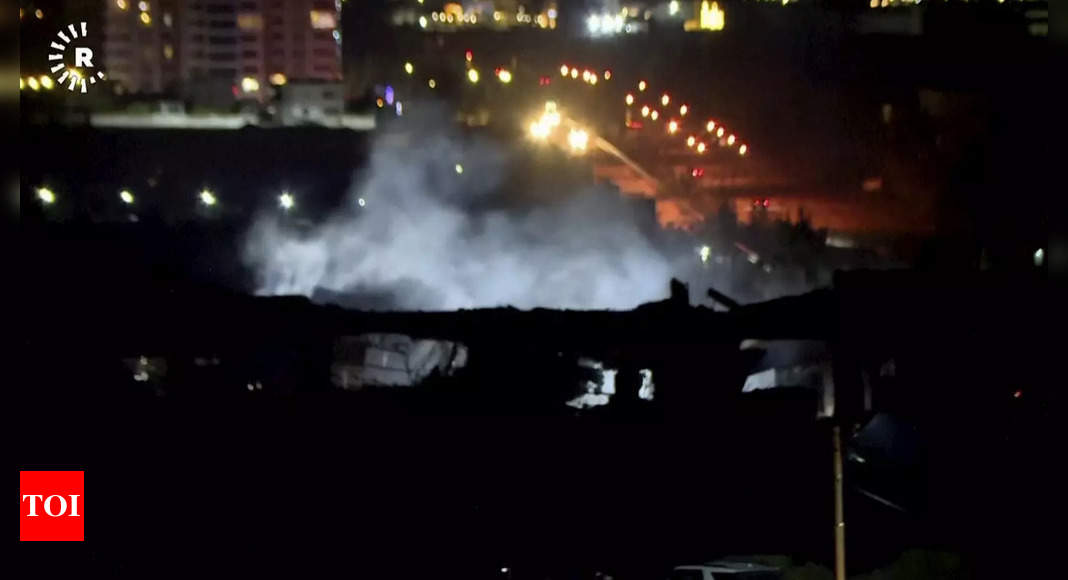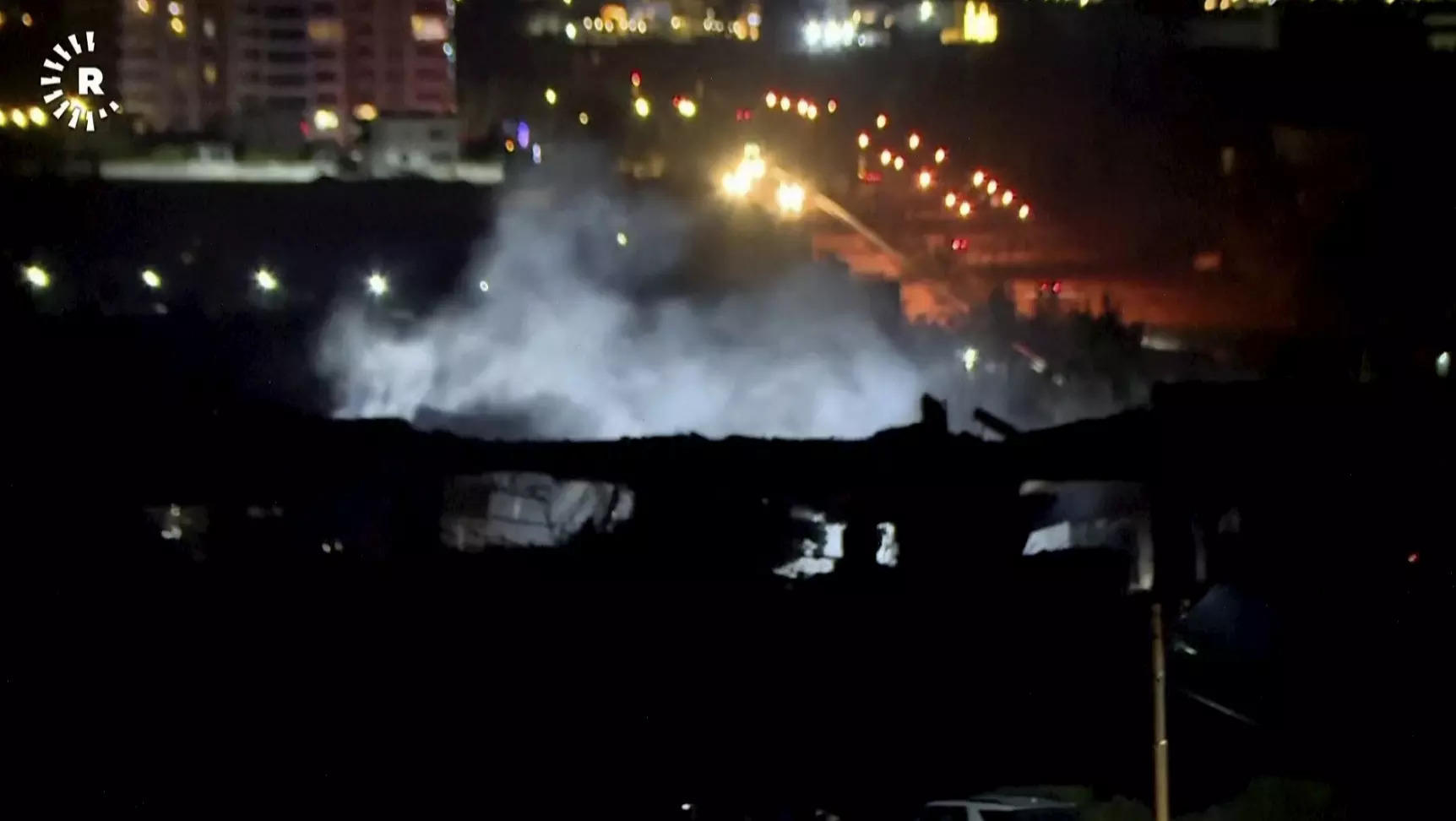[ad_1]
Iran’s Revolutionary Guard launched a daring assault on militant bases in Pakistan‘s Balochistan province on Tuesday, escalating tensions in a region already on edge.
The attack, unprecedented in nature, involved missiles and drones, targeting Jaish al-Adl, a Sunni militant group. The offensive, however, resulted in tragic collateral damage, killing two children and injuring three others.Pakistan’s foreign ministry condemned the strike as an “unprovoked violation” of its sovereignty, hinting at severe repercussions and a dent in bilateral trust.
Why Iran targeted ‘Sunni militant bases’ in Pakistan
The attack, unprecedented in nature, involved missiles and drones, targeting Jaish al-Adl, a Sunni militant group. The offensive, however, resulted in tragic collateral damage, killing two children and injuring three others.Pakistan’s foreign ministry condemned the strike as an “unprovoked violation” of its sovereignty, hinting at severe repercussions and a dent in bilateral trust.
Why Iran targeted ‘Sunni militant bases’ in Pakistan
- Targeted assault: Iran executed a calculated missile strike on Jaish al-Adl’s two main bases in Pakistan, a move reported by Iranian state media. This action followed closely after the elite Revolutionary Guards conducted missile attacks on targets in Iraq and Syria.
- Strategic demolition: “Two key strongholds of the Jaysh al-Dhulm (Jaish al-Adl) terrorist group in Pakistan” were the focus of this operation and were “specifically targeted and successfully demolished,” as per the statement by Iran’s semi-official Tasnim news agency.
- Militant group in focus: Jaish al-Adl, also known as the “Army of Justice,” is a Sunni militant faction established in 2012 with a significant presence in Pakistan. While Iran has previously engaged with the group along the border regions, the recent missile-and-drone attack on Pakistani soil marks a novel and aggressive approach in their confrontation.
- Retaliatory move: The attack comes in the wake of a deadly assault last month on an Iranian police station in the southeastern province of Sistan-Balochistan. The incident, which resulted in the death of at least 11 Iranian police officers, was attributed to Jaish al-Adl by Iranian Interior Minister Ahmad Vahidi. He alleged that the militants had launched the attack from the Pakistan side near Panjgur, indicating a potential motive behind Iran’s recent military actions.
What they’re saying
- Pakistan’s foreign ministry said it summoned the Iranian charge d’affaires to lodge a “strong protest” and said that such unilateral acts are not in conformity with good neighborly relations and can seriously undermine bilateral trust and confidence.
- “It is even more concerning that this illegal act has taken place despite the existence of several channels of communication between Pakistan and Iran,” Pakistan’s foreign ministry said.
- “Pakistan has always said terrorism is a common threat to all countries in the region that requires coordinated action. Such unilateral acts are not in conformity with good neighbourly relations and can seriously undermine bilateral trust and confidence.”
- Pakistan also expressed concern that the “illegal act” took place despite the existence of several established channels of communication between the two countries, and reaffirmed its commitment to combating terrorism in the region.
- Iran’s state media did not provide any details or evidence of the strikes, and some reports soon disappeared from their websites. Iran’s Foreign Minister Hossein Amir Abdollahian met with Pakistan’s caretaker Prime Minister Anwaar-ul-Haq Kakar on the sidelines of the World Economic Forum in Davos, Switzerland, on Tuesday, but there was no official statement on their talks.
The big picture
- Iran and Pakistan share a 959-kilometer (596-mile) border, mostly in the restive province of Sistan-Balochistan, where Iran’s Sunni minority lives and faces discrimination and repression from the Shiite-dominated regime.
- Iran has accused Pakistan of harboring and supporting militant groups that carry out cross-border attacks, and has threatened to launch raids inside Pakistan in the past. Pakistan has denied the allegations and urged Iran to respect its territorial integrity.
- The two countries have also been at odds over their regional rivalries and alliances. However, they have also tried to maintain some cooperation and dialogue on issues such as trade, energy, and security.
Why it matters
- The attack inside of nuclear-armed Pakistan by Iran threatens the relations between the two countries, which have long been wary of each other while maintaining diplomatic ties. It also raises the risk of further escalation and instability in a region already inflamed by Israel’s war on Hamas in the Gaza Strip.
- Regional dynamics: This strike isn’t in isolation. It follows Iran’s aggressive posturing in Iraq and Syria, targeting what it perceives as adversarial entities. This pattern of attacks signals Tehran’s broader strategy in the region, responding to threats and projecting power, even at the risk of regional destabilization.
- Geopolitical chessboard: These dynamics reflect the region’s fragile balance, where geopolitical rivalries, internal strife, and the fight against militancy create a volatile mix, ready to ignite at the slightest provocation.
Broader implications
- The US and its allies’ retaliation against Houthi attacks, Iran’s offensive moves in Iraq, Syria, and now Pakistan, collectively signal a disturbing trend. The international community watches closely as the Biden administration contemplates designating the Houthis as global terrorists, a move reflecting the gravity of the situation.
- Despite retaliatory strikes by the US and allies, the Houthis continue their maritime assaults, hinting at a possible escalation into a broader regional conflict.
- The Biden administration, amidst these tumultuous events, is considering re-designating the Houthis as global terrorists. This move, coupled with the ongoing US diplomatic and military efforts, underscores the growing international concern over the expanding scope of these conflicts and the urgent need for a strategic and coordinated response to prevent a full-scale regional war.
(With inputs from agencies)
[ad_2]
Source link


